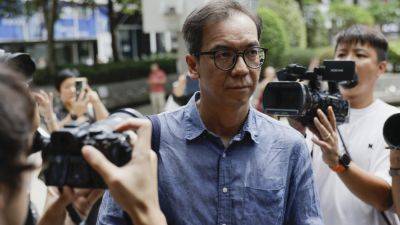This Is What Can Land You in Jail for Sedition in Hong Kong
Wearing a T-shirt with a protest slogan.
Scrawling pro-democracy graffiti on public bus seats.
Criticizing Xi Jinping on social media.
Three men in Hong Kong were sentenced to prison last week for these acts of protest, which in another era probably would have drawn little notice — showing the power of a newly expanded national security law aimed at muzzling dissent.
The rulings, rendered over two days by a judge whom Hong Kong’s leader handpicked, highlight the political transformation that has taken place here.
A financial center and a city accustomed to freedom of political expression, Hong Kong now more closely resembles mainland China, where criticism of the ruling Communist Party is rarely, if ever, tolerated.
China agreed to preserve Hong Kong’s “lifestyle” for 50 years after the territory’s return to Beijing from British colonial rule in 1997 under a “one country, two systems” formula. But demands for greater democracy, culminating in antigovernment demonstrations that engulfed the city in 2019, led to a political crackdown that has eliminated virtually all public opposition to Beijing. A once freewheeling news media has also been silenced. Two editors who led the now-defunct Stand News were the first journalists in decades to be convicted of sedition.
“We are still in the midst of the national security reordering of the civic space in Hong Kong,” said Thomas Kellogg, executive director of the Georgetown Center for Asian Law. “Public debate and discussion is a shadow of its former self, and the government will continue to use its national security tool kit to police what people say and write.”







